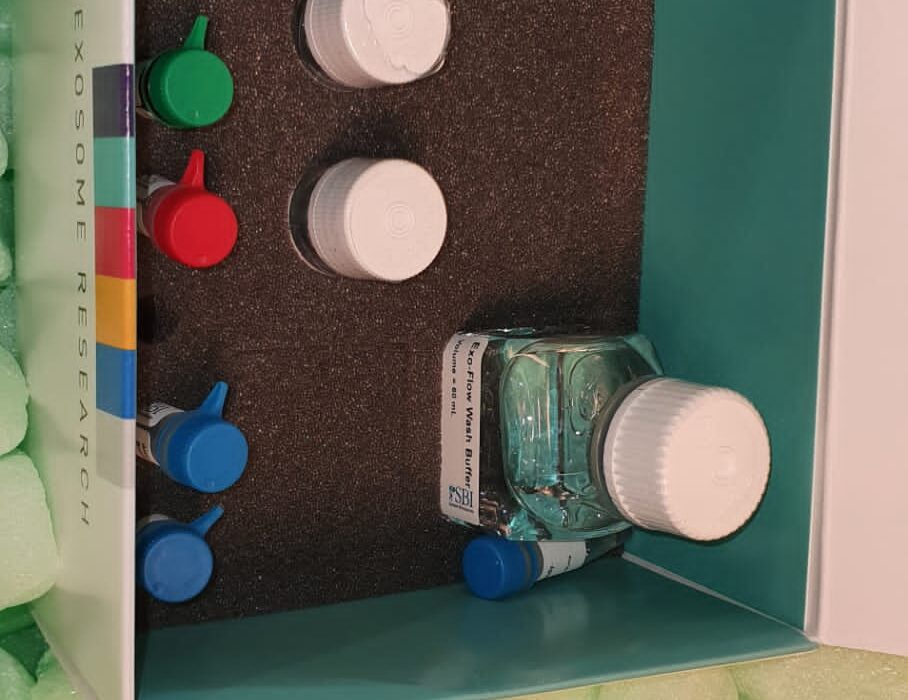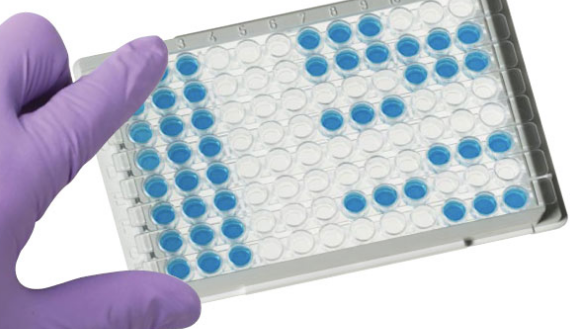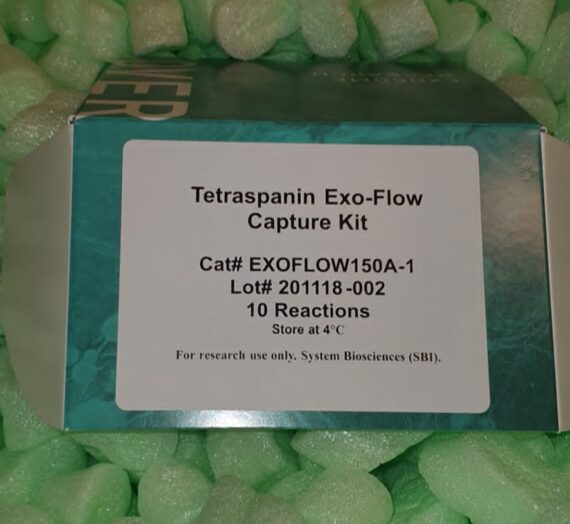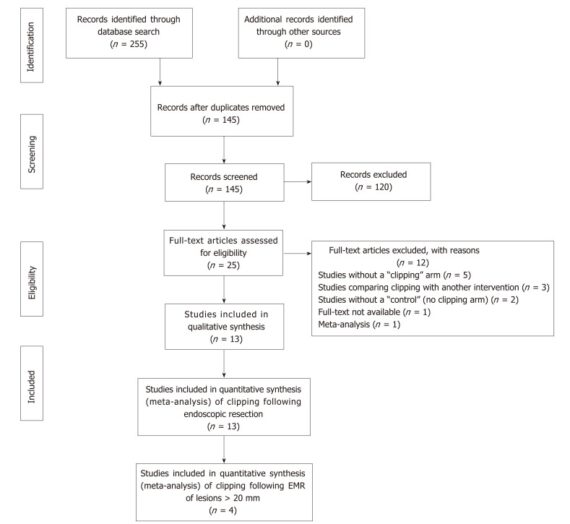Seafood is the predominant supply of omega-Three fatty acids, that are important for optimum neural growth. However, within the USA, ladies are suggested to restrict their seafood consumption throughout being pregnant to 340 g per week. We used the Avon Longitudinal Study of Parents and Children (ALSPAC) to evaluate the potential advantages and hazards to a baby’s growth of various ranges of maternal seafood consumption throughout being pregnant. 11,875 pregnant ladies accomplished a meals frequency questionnaire assessing seafood consumption at 32 weeks’ gestation.
After adjustment, maternal seafood consumption throughout being pregnant of lower than 340 g per week was related to elevated threat of their youngsters being within the lowest quartile for verbal intelligence quotient (IQ) (no seafood consumption, odds ratio [OR] 1.48, 95% CI 1.16-1.90; some, 1.09, 0.92-1.29; general pattern, p=0.004), in contrast with moms who consumed greater than 340 g per week. Low maternal seafood consumption was additionally related to elevated threat of suboptimum outcomes for prosocial behaviour, advantageous motor, communication, and social growth scores.
For every final result measure, the decrease the consumption of seafood throughout being pregnant, the upper the chance of suboptimum developmental final result. Maternal seafood consumption of lower than 340 g per week in being pregnant didn’t defend youngsters from hostile outcomes; somewhat, we recorded useful results on baby growth with maternal seafood intakes of greater than 340 g per week, suggesting that recommendation to restrict seafood consumption may really be detrimental. These outcomes present that dangers from the lack of vitamins have been higher than the dangers of hurt from publicity to hint contaminants in 340 g seafood eaten weekly.
Vibrio parahaemolyticus: a priority of seafood security.
Vibrio parahaemolyticus is a human pathogen that’s broadly distributed within the marine environments. This organism is regularly remoted from quite a lot of uncooked seafoods, notably shellfish. Consumption of uncooked or undercooked seafood contaminated with V. parahaemolyticus could result in growth of acute gastroenteritis characterised by diarrhea, headache, vomiting, nausea, and belly cramps. This pathogen is a typical reason for foodborne diseases in lots of Asian nations, together with China, Japan and Taiwan, and is acknowledged because the main reason for human gastroenteritis related to seafood consumption within the United States. This evaluation offers an outline of V. parahaemolyticus meals poisoning and gives info on current growth in strategies for detecting V. parahaemolyticus and methods for decreasing threat of V. parahaemolyticus infections related to seafood consumption.
Umbilical twine blood from 1,023 consecutive births within the Faroe Islands confirmed a median blood-mercury focus of 121 nmol/l (24.2 micrograms/l); 250 of these samples (25.1%) had blood-mercury concentrations that exceeded 200 nmol/l (40 micrograms/l). Maternal hair mercury concentrations confirmed a median of 22.5 nmol/g (4.5 micrograms/g), and 130 samples (12.7%) contained concentrations that exceeded 50 nmol/g (10 micrograms/g).
Frequent ingestion of whale meat dinners throughout being pregnant and, to a a lot lesser diploma, frequent consumption of fish, and elevated parity or age have been related to excessive mercury concentrations in twine blood and hair. Blood-mercury ranges have been barely decrease if the mom had often ingested alcoholic drinks. Mercury in blood correlated reasonably with blood selenium (median, 1.40 mumol/l). Increased selenium concentrations have been related to consumption of whale meat, alcohol abstention, supply after time period, and excessive parity. Lead in twine blood was low (median, 82 nmol/l), notably if the moms had regularly had fish for dinner and had abstained from smoking.
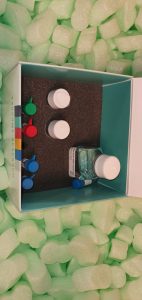
Neurobehavioral deficits related to PCB in 7-year-old youngsters prenatally uncovered to seafood neurotoxicants.
Prenatal publicity to polychlorinated biphenyls (PCBs) was examined by evaluation of twine tissue from 435 youngsters from a Faroese beginning cohort. Analysis of 50 paired twine blood samples confirmed wonderful correlation with the twine tissue focus (r=.90). Among 17 neuropsychological outcomes decided at age 7 years, the twine PCB focus was related to deficits on the Boston Naming Test (with out cues, two-tailed P=.09 not adjusted for mercury; with cues, P=.03), the Continuous Performance Test response time (P=.03), and, probably, on long-term recall on the California Verbal Learning Test (P=.15).
The affiliation between twine PCB and cord-blood mercury (r=.42) recommended potential confounding. While no PCB results have been obvious in youngsters with low mercury publicity, PCB-associated deficits inside the highest tertile of mercury publicity indicated a potential interplay between the 2 neurotoxicants. PCB-associated elevated thresholds have been seen at two of eight frequencies on audiometry, however solely on the left facet, and no deficits occurred on evoked potentials or distinction sensitivity. The restricted PCB-related neurotoxicity on this cohort seems to be affected by concomitant methylmercury publicity.
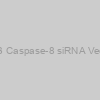 pGB Caspase-8 siRNA Vector |
|
9508-20 |
Biovision |
each |
EUR 732 |
 pGB Caspase-8 siRNA Vector |
|
9508-60 |
Biovision |
each |
EUR 1266 |
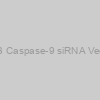 pGB Caspase-9 siRNA Vector |
|
9509-20 |
Biovision |
each |
EUR 732 |
 pGB Caspase-9 siRNA Vector |
|
9509-60 |
Biovision |
each |
EUR 1266 |
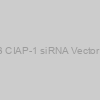 pGB CIAP-1 siRNA Vector Mix |
|
9516-20 |
Biovision |
each |
EUR 732 |
 pGB CIAP-1 siRNA Vector Mix |
|
9516-60 |
Biovision |
each |
EUR 1266 |
) siRNA Cloning Vector (pGB) |
|
9500-20 |
Biovision |
each |
EUR 352.8 |
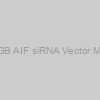 pGB AIF siRNA Vector Mix |
|
9511-20 |
Biovision |
each |
EUR 732 |
 pGB AIF siRNA Vector Mix |
|
9511-60 |
Biovision |
each |
EUR 1266 |
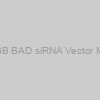 pGB BAD siRNA Vector Mix |
|
9512-20 |
Biovision |
each |
EUR 732 |
 pGB BAD siRNA Vector Mix |
|
9512-60 |
Biovision |
each |
EUR 1266 |
 pGB BAX siRNA Vector Mix |
|
9513-20 |
Biovision |
each |
EUR 732 |
 pGB BAX siRNA Vector Mix |
|
9513-60 |
Biovision |
each |
EUR 1266 |
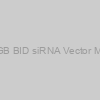 pGB BID siRNA Vector Mix |
|
9515-20 |
Biovision |
each |
EUR 732 |
 pGB BID siRNA Vector Mix |
|
9515-60 |
Biovision |
each |
EUR 1266 |
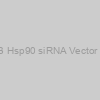 pGB Hsp90 siRNA Vector Mix |
|
9518-20 |
Biovision |
each |
EUR 732 |
 pGB Hsp90 siRNA Vector Mix |
|
9518-60 |
Biovision |
each |
EUR 1266 |
) Control siRNA Vector (pGB-control) |
|
9500C-20 |
Biovision |
each |
EUR 405.6 |
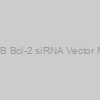 pGB Bcl-2 siRNA Vector Mix |
|
9514-20 |
Biovision |
each |
EUR 732 |
 pGB Bcl-2 siRNA Vector Mix |
|
9514-60 |
Biovision |
each |
EUR 1266 |
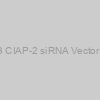 pGB CIAP-2 siRNA Vector Mix |
|
9517-20 |
Biovision |
each |
EUR 732 |
 pGB CIAP-2 siRNA Vector Mix |
|
9517-60 |
Biovision |
each |
EUR 1266 |
 TranslationBlocker Human Caspase-1 siRNA, 1nmol |
|
QX38-1nmol |
EnQuireBio |
1nmol |
EUR 331.2 |
 TranslationBlocker Human Caspase-1 siRNA, 5nmol |
|
QX38-5nmol |
EnQuireBio |
5nmol |
EUR 452.4 |
 TranslationBlocker Human Caspase-2 siRNA, 2nmol |
|
QX39-2nmol |
EnQuireBio |
2nmol |
EUR 331.2 |
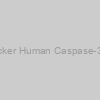 TranslationBlocker Human Caspase-3 siRNA, 2nmol |
|
QX40-2nmol |
EnQuireBio |
2nmol |
EUR 331.2 |
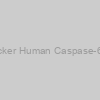 TranslationBlocker Human Caspase-6 siRNA, 2nmol |
|
QX41-2nmol |
EnQuireBio |
2nmol |
EUR 331.2 |
 TranslationBlocker Human Caspase-7 siRNA, 2nmol |
|
QX42-2nmol |
EnQuireBio |
2nmol |
EUR 331.2 |
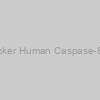 TranslationBlocker Human Caspase-8 siRNA, 2nmol |
|
QX43-2nmol |
EnQuireBio |
2nmol |
EUR 331.2 |
 TranslationBlocker Human Caspase-2 siRNA, 10nmol |
|
QX39-10nmol |
EnQuireBio |
10nmol |
EUR 452.4 |
 TranslationBlocker Human Caspase-3 siRNA, 10nmol |
|
QX40-10nmol |
EnQuireBio |
10nmol |
EUR 452.4 |
 TranslationBlocker Human Caspase-6 siRNA, 10nmol |
|
QX41-10nmol |
EnQuireBio |
10nmol |
EUR 452.4 |
 TranslationBlocker Human Caspase-7 siRNA, 10nmol |
|
QX42-10nmol |
EnQuireBio |
10nmol |
EUR 452.4 |
 TranslationBlocker Human Caspase-8 siRNA, 10nmol |
|
QX43-10nmol |
EnQuireBio |
10nmol |
EUR 452.4 |
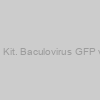 Green Kit. Baculovirus GFP vector. |
|
K20 |
AB Vector LLC |
1 Kit |
EUR 695 |
|
|
|
Description: Protein expression |
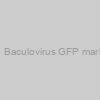 ProGreen. Baculovirus GFP marker vector. |
|
A1 |
AB Vector LLC |
25 ul |
EUR 420 |
|
|
|
Description: Protein expression |
 pVL1393. General baculovirus plasmid vector. |
|
B1 |
AB Vector LLC |
50 ul |
EUR 340 |
|
|
|
Description: Protein expression |
 Caspase-1 |
|
E8ET1608-69 |
EnoGene |
100ul |
EUR 275 |
|
Description: Available in various conjugation types. |
 Caspase-1 |
|
E8M1505-2 |
EnoGene |
100ul |
EUR 275 |
|
Description: Available in various conjugation types. |
 Caspase-1 |
|
E8R1510-22 |
EnoGene |
100ul |
EUR 275 |
|
Description: Available in various conjugation types. |
 Caspase-1 |
|
E8R1510-23 |
EnoGene |
100ul |
EUR 275 |
|
Description: Available in various conjugation types. |
 Caspase-1 |
|
AP79144 |
SAB |
1mg |
EUR 2640 |
|
|
 Caspase-1 |
|
AP81083 |
SAB |
1mg |
EUR 2640 |
|
|
 Caspase-1 |
|
AP81213 |
SAB |
1mg |
EUR 2640 |
|
|
 Caspase-1 |
|
AP81326 |
SAB |
1mg |
EUR 2640 |
|
|
 Caspase-1 |
|
AP81464 |
SAB |
1mg |
EUR 2640 |
|
|
 ProEasy. Vector for easy construction of recombinant baculoviruses. |
|
A10S |
AB Vector LLC |
25 ul |
EUR 695 |
|
|
|
Description: Protein expression |
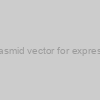 pAcAB3. Baculovirus plasmid vector for expression of up to 3 proteins. |
|
B2 |
AB Vector LLC |
50 ul |
EUR 420 |
|
|
|
Description: Protein expression |
 pAB-bee. Baculovirus plasmid vector for secreted and transmembrane proteins. |
|
B3 |
AB Vector LLC |
50 ul |
EUR 495 |
|
|
|
Description: Protein expression |
 Caspase-1 p20 |
|
E8ER1905-47 |
EnoGene |
100ul |
EUR 275 |
|
Description: Available in various conjugation types. |
 ProFold-PDI. Baculovirus chaperone vector for expression of cysteine-rich proteins. |
|
A7 |
AB Vector LLC |
25 ul |
EUR 830 |
|
|
|
Description: Protein expression |
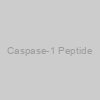 Caspase-1 Peptide |
|
3459P |
ProSci |
0.05 mg |
EUR 197.7 |
|
Description: (CT) Caspase-1 peptide |
 Caspase-1 Peptide |
|
3463P |
ProSci |
0.05 mg |
EUR 197.7 |
|
Description: (IN) Caspase-1 peptide |
 ProFold-C1. Baculovirus chaperone vector for expression of cytoplasmic and nuclear proteins. |
|
A2 |
AB Vector LLC |
25 ul |
EUR 830 |
|
|
|
Description: Protein expression |
 ProFold-C2. Baculovirus chaperone vector for expression of cytoplasmic and nuclear proteins. |
|
A3 |
AB Vector LLC |
25 ul |
EUR 830 |
|
|
|
Description: Protein expression |
 ProFold-ER1. Baculovirus chaperone vector for expression of secreted and membrane proteins. |
|
A4 |
AB Vector LLC |
25 ul |
EUR 830 |
|
|
|
Description: Protein expression |
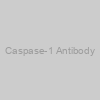 Caspase-1 Antibody |
|
24290-100ul |
SAB |
100ul |
EUR 468 |
 Caspase-1 Antibody |
|
24291-100ul |
SAB |
100ul |
EUR 468 |
 Caspase-1 Antibody |
|
3019-100 |
Biovision |
each |
EUR 483.6 |
 Caspase-1 Antibody |
|
3019-30T |
Biovision |
each |
EUR 175.2 |
 Caspase-1 Antibody |
|
3459-002mg |
ProSci |
0.02 mg |
EUR 206.18 |
|
|
|
Description: Caspase-1 Antibody: Caspases are a family of cysteine proteases that can be divided into the apoptotic and inflammatory caspase subfamilies. Unlike the apoptotic caspases, members of the inflammatory subfamily are generally not involved in cell death but are associated with the immune response to microbial pathogens. Members of this subfamily include caspase-1, -4, -5, and -12 and can activate proinflammatory cytokines such as IL-1β and IL-18. Caspase-1 was initially identified as an IL-1β-converting enzyme; later experiments revealed it to be a mammalian homolog of the C. elegans cell death gene ced-3 whose overexpression can induce apoptosis in fibroblasts. |
 Caspase-1 Antibody |
|
3459-01mg |
ProSci |
0.1 mg |
EUR 523.7 |
|
|
|
Description: Caspase-1 Antibody: Caspases are a family of cysteine proteases that can be divided into the apoptotic and inflammatory caspase subfamilies. Unlike the apoptotic caspases, members of the inflammatory subfamily are generally not involved in cell death but are associated with the immune response to microbial pathogens. Members of this subfamily include caspase-1, -4, -5, and -12 and can activate proinflammatory cytokines such as IL-1β and IL-18. Caspase-1 was initially identified as an IL-1β-converting enzyme; later experiments revealed it to be a mammalian homolog of the C. elegans cell death gene ced-3 whose overexpression can induce apoptosis in fibroblasts. |
 Caspase-1 Antibody |
|
3463-002mg |
ProSci |
0.02 mg |
EUR 206.18 |
|
|
|
Description: Caspase-1 Antibody: Caspases are a family of cysteine proteases that can be divided into the apoptotic and inflammatory caspase subfamilies. Unlike the apoptotic caspases, members of the inflammatory subfamily are generally not involved in cell death but are associated with the immune response to microbial pathogens. Members of this subfamily include caspase-1, -4, -5, and -12 and can activate proinflammatory cytokines such as IL-1β and IL-18. Caspase-1 was initially identified as an IL-1β-converting enzyme; later experiments revealed it to be a mammalian homolog of the C. elegans cell death gene ced-3 whose overexpression can induce apoptosis in fibroblasts. |
 Caspase-1 Antibody |
|
3463-01mg |
ProSci |
0.1 mg |
EUR 523.7 |
|
|
|
Description: Caspase-1 Antibody: Caspases are a family of cysteine proteases that can be divided into the apoptotic and inflammatory caspase subfamilies. Unlike the apoptotic caspases, members of the inflammatory subfamily are generally not involved in cell death but are associated with the immune response to microbial pathogens. Members of this subfamily include caspase-1, -4, -5, and -12 and can activate proinflammatory cytokines such as IL-1β and IL-18. Caspase-1 was initially identified as an IL-1β-converting enzyme; later experiments revealed it to be a mammalian homolog of the C. elegans cell death gene ced-3 whose overexpression can induce apoptosis in fibroblasts. |
 Caspase-1 Antibody |
|
48847-100ul |
SAB |
100ul |
EUR 399.6 |
 Caspase-1 Antibody |
|
48847-50ul |
SAB |
50ul |
EUR 286.8 |
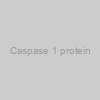 Caspase 1 protein |
|
30R-2404 |
Fitzgerald |
25 units |
EUR 333 |
|
|
|
Description: Purified recombinant Human Caspase 1 protein |
 Caspase 1 protein |
|
30R-2413 |
Fitzgerald |
25 units |
EUR 273 |
|
|
|
Description: Purified recombinant Mouse Caspase 1 protein |
) Human Caspase-1 (CASP1) |
|
1-CSB-RP058244he0 |
Cusabio |
-
Ask for price
-
Ask for price
-
Ask for price
-
Ask for price
-
Ask for price
-
Ask for price
|
- 100ug
- 10ug
- 1MG
- 200ug
- 500ug
- 50ug
|
|
|
|
Description: Recombinant Human Caspase-1(CASP1),partial expressed in E.coli |
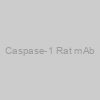 Caspase-1 Rat mAb |
|
A21085 |
Abclonal |
1000μL |
EUR 323.7 |
|
|
|
Description: Recombinant fusion protein containing a sequence corresponding to amino acids 1-255 of human L3MBTL3 (NP_115814.1). |
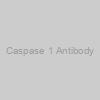 Caspase 1 Antibody |
|
6687-100 |
Biovision |
each |
EUR 405.6 |
 Caspase 1 Antibody |
|
6687-30T |
Biovision |
each |
EUR 175.2 |
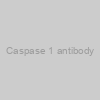 Caspase 1 antibody |
|
20R-1427 |
Fitzgerald |
100 ug |
EUR 781.2 |
|
Description: Rabbit polyclonal Caspase 1 antibody |
 caspase 1 Antibody |
|
39310-100ul |
SAB |
100ul |
EUR 468 |
 Caspase 1 Antibody |
|
E18-5418-1 |
EnoGene |
50μg/50μl |
EUR 145 |
|
Description: Available in various conjugation types. |
 Caspase 1 Antibody |
|
E18-5418-2 |
EnoGene |
100μg/100μl |
EUR 225 |
|
Description: Available in various conjugation types. |
 Caspase 1 Antibody |
|
E38PA1133 |
EnoGene |
100ul |
EUR 225 |
|
Description: Available in various conjugation types. |
 Caspase 1 Antibody |
|
DF6148 |
Affbiotech |
200ul |
EUR 420 |
 caspase 1 Antibody |
|
E300022a |
EnoGene |
100ug/200ul |
EUR 275 |
|
Description: Available in various conjugation types. |
 caspase 1 Antibody |
|
E300022b |
EnoGene |
200ul |
EUR 275 |
|
Description: Available in various conjugation types. |
 Caspase 1 Antibody |
|
E38PA5426 |
EnoGene |
100ul |
EUR 225 |
|
Description: Available in various conjugation types. |
 Caspase 1 Antibody |
|
AF5418 |
Affbiotech |
200ul |
EUR 420 |
 Caspase 1 antibody |
|
70R-13979 |
Fitzgerald |
100 ug |
EUR 519 |
|
|
|
Description: Affinity purified Rabbit polyclonal Caspase 1 antibody |
 Caspase 1 antibody |
|
70R-14061 |
Fitzgerald |
100 ug |
EUR 519 |
|
|
|
Description: Affinity purified Rabbit polyclonal Caspase 1 antibody |
 Caspase 1 antibody |
|
70R-15367 |
Fitzgerald |
100 ug |
EUR 302 |
|
|
|
Description: Rabbit polyclonal Caspase 1 antibody |
 Caspase 1 antibody |
|
70R-35920 |
Fitzgerald |
100 ug |
EUR 294 |
|
|
|
Description: Rabbit polyclonal Caspase 1 antibody |
 Caspase 1 antibody |
|
70R-49451 |
Fitzgerald |
100 ul |
EUR 242 |
|
|
|
Description: Purified Polyclonal Caspase 1 antibody |
 Caspase 1 antibody |
|
70R-49452 |
Fitzgerald |
100 ul |
EUR 242 |
|
|
|
Description: Purified Polyclonal Caspase 1 antibody |
 Caspase 1 antibody |
|
70R-31086 |
Fitzgerald |
100 ug |
EUR 294 |
|
|
|
Description: Rabbit polyclonal Caspase 1 antibody |
 Caspase 1 antibody |
|
70R-31087 |
Fitzgerald |
100 ug |
EUR 294 |
|
|
|
Description: Rabbit polyclonal Caspase 1 antibody |
 Caspase 1 antibody |
|
70R-31116 |
Fitzgerald |
100 ug |
EUR 294 |
|
|
|
Description: Rabbit polyclonal Caspase 1 antibody |
 Caspase 1 antibody |
|
70R-11561 |
Fitzgerald |
100 ug |
EUR 490 |
|
|
|
Description: Rabbit polyclonal Caspase 1 antibody |
 Caspase 1 antibody |
|
70R-51474 |
Fitzgerald |
100 ul |
EUR 242 |
|
|
|
Description: Purified Polyclonal Caspase 1 antibody |
 Antibody) Caspase 12 (Caspase 12) Antibody |
|
abx432451-200ul |
Abbexa |
200 ul |
EUR 460.8 |
|
|
 Antibody) Caspase 12 (Caspase 12) Antibody |
|
abx231286-100ug |
Abbexa |
100 ug |
EUR 577.2 |
|
|
 Antibody) Caspase 12 (Caspase 12) Antibody |
|
20-abx007974 |
Abbexa |
-
Ask for price
-
Ask for price
-
Ask for price
|
|
|
|
 Caspase-1 Rabbit mAb |
|
60058 |
SAB |
100ul |
EUR 339 |
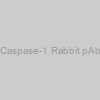 Caspase-1 Rabbit pAb |
|
E2342947 |
EnoGene |
100ul |
EUR 225 |
|
Description: Available in various conjugation types. |
 Caspase-1 Rabbit pAb |
|
E2347273 |
EnoGene |
100ul |
EUR 225 |
|
Description: Available in various conjugation types. |
 Caspase-1 Rabbit pAb |
|
E2381016 |
EnoGene |
100ul |
EUR 225 |
|
Description: Available in various conjugation types. |
 Caspase-1 Rabbit pAb |
|
A0964-100ul |
Abclonal |
100 ul |
EUR 369.6 |
 Caspase-1 Rabbit pAb |
|
A0964-200ul |
Abclonal |
200 ul |
EUR 550.8 |
 Caspase-1 Rabbit pAb |
|
A0964-20ul |
Abclonal |
20 ul |
EUR 219.6 |
 Caspase-1 Rabbit pAb |
|
A0964-50ul |
Abclonal |
50 ul |
EUR 267.6 |
 Caspase-1 Rabbit pAb |
|
A16792-100ul |
Abclonal |
100 ul |
EUR 369.6 |
 Caspase-1 Rabbit pAb |
|
A16792-200ul |
Abclonal |
200 ul |
EUR 550.8 |
 Caspase-1 Rabbit pAb |
|
A16792-20ul |
Abclonal |
20 ul |
EUR 219.6 |
 Caspase-1 Rabbit pAb |
|
A16792-50ul |
Abclonal |
50 ul |
EUR 267.6 |
 Caspase-1 Rabbit mAb |
|
58791 |
SAB |
100ul |
EUR 339 |
) Caspase-1 Antibody (p20) |
|
R30510 |
NSJ Bioreagents |
100 ug |
EUR 356.15 |
|
|
|
Description: Caspase-1 is a cysteine protease that regulates inflammatory processes through its capacity to process and activate the interleukin-1-beta, interleukin 18, and interleukin 33 precursor proteins. The Caspase-1 gene consists of 10 exons spanning at least 10.6 kb and is mapped to 11q23, a site frequently involved in rearrangement in human cancers, including a number of leukemias and lymphomas. |
) Caspase-1 Antibody (p20) |
|
R30511 |
NSJ Bioreagents |
100 ug |
EUR 356.15 |
|
|
|
Description: Caspase-1 is a cysteine protease that regulates inflammatory processes through its capacity to process and activate the interleukin-1-beta, IL-18, and IL-33 precursor proteins. It belongs to a family of cysteine proteases known as caspases that always cleave proteins following an aspartic acid residue. The Caspase-1 gene consists of 10 exons spanning at least 10.6 kb and is mapped to 11q23, a site frequently involved in rearrangement in human cancers, including a number of leukemias and lymphomas, by Southern DNA blot analysis of rodent-human hybrids and by in situ hybridization to normal human metaphase chromosomes. Caspase 1 has been shown to induce cell necrosis or pyroptosis and may function in various developmental stages. |
) Caspase-1 Antibody (p10) |
|
R30597 |
NSJ Bioreagents |
100 ug |
EUR 356.15 |
|
|
|
Description: Caspase-1, an apoptosis-related cysteine protease, is a cysteine protease that regulates inflammatory processes through its capacity to process and activate the interleukin-1-beta, IL-18, and IL-33 precursor proteins. It was purified from the cytosol of the THP monocytic cell line and found that the active protease was made up of two peptides, which they called p20 and p10 based on their apparent molecular masses by SDS-PAGE. It belongs to a family of cysteine proteases known as caspases that always cleave proteins following an aspartic acid residue. The CASP1 gene is mapped to 11q23, a site frequently involved in rearrangement in human cancers, including a number of leukemias and lymphomas, by Southern DNA blot analysis of rodent-human hybrids and by in situ hybridization to normal metaphase chromosomes. Caspase-1 has been shown to induce cell necrosis or pyroptosis and may function in various developmental stages. |
 ELISA Kit) Rat Caspase-12 (Caspase-12) ELISA Kit |
|
RK07155 |
Abclonal |
96T |
EUR 280 |
 ELISA Kit) Rat Caspase-2(Caspase-2) ELISA Kit |
|
ER1468 |
FN Test |
96T |
EUR 628.92 |
|
|
|
Description: Method of detection: Double Antibody, Sandwich ELISA;Reacts with: Rattus;Sensitivity: 0.094 ng/ml |
ELISA Kit) Rat Caspase-9(Caspase-9)ELISA Kit |
|
NSL1644r |
Sunlong |
96 Tests |
EUR 498 |
|
|
ELISA Kit) Rat Caspase-8(Caspase-8)ELISA Kit |
|
NSL1645r |
Sunlong |
96 Tests |
EUR 498 |
|
|
ELISA Kit) Rat Caspase-3(Caspase-3)ELISA Kit |
|
NSL1646r |
Sunlong |
96 Tests |
EUR 498 |
|
|
) Active Caspase 1 (CASP1) |
|
APB592Ra01 |
Cloud-Clone |
10ug |
EUR 368 |
) Active Caspase 1 (CASP1) |
|
4-APB592Ra01 |
Cloud-Clone |
-
Ask for price
-
Ask for price
-
Ask for price
-
Ask for price
-
Ask for price
-
Ask for price
-
Ask for price
|
- 100 ug
- 10ug
- 1 mg
- 200 ug
- 500 ug
- 50ug
- 5 mg
|
|
|
|
Description: Recombinant Rat Caspase 1 expressed in: E.coli |
Mothers selectively switch docosahexaenoic acid (DHA) to their fetuses to help optimum neurological growth throughout being pregnant. Without enough dietary consumption, moms grow to be depleted of DHA and should enhance their threat of struggling main depressive signs within the postpartum interval. We postulated that the DHA content material of moms’ milk and seafood consumption would each predict prevalence charges of postpartum melancholy throughout nations.
Published prevalence information for postpartum melancholy have been included that used the Edinburgh Postpartum Depression Scale (n=14532 topics in 41 research). These information have been in comparison with the DHA, eicosapentaenoic acid (EPA) and arachidonic acid (AA) content material in moms’ milk and to seafood consumption charges in printed stories from 23 nations Multivariable logistic regression fashions together with 28 potential confounders assessing social drawback, perinatal, and dietary objects have been used to check developmental, behavioural, and cognitive outcomes of the kids from age 6 months to eight years in ladies consuming none, some (1-340 g per week), and >340 g per week.


